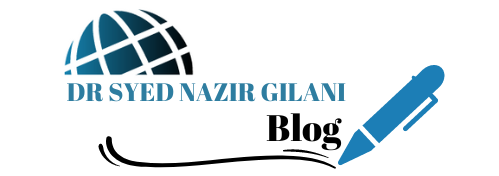Pakistan
has submitted itself in writing to the jurisdiction of the UN Charter on 8 January 1948. It has welcomed the reference made by India to the UN Security Council on Kashmir and has assured the UN SC that it “will continue to abstain from any measure incompatible with the Charter which might aggravate the situation”. This assurance binds Pakistan in regard to the Intra-State obligation towards India and in regard to the territories of the State, that is, Azad Kashmir and GB on its side of cease fire line.
The question of the territories of the State falling on either side of the cease fire line is duly addressed in UN SC Resolution 91 of 30 March 1951. It has been further elaborated by Philippines at the 773 rd meeting of UN Security Council on 20 February 1957. Referring to UNCIP Resolutions of 13 August 1948 and 5 January 1949, Philippines has said that, “Under the circumstances and pending the holding of a plebiscite, neither India nor Pakistan can claim sovereignty over the State of Jammu and Kashmir”.
In its document III titled “Particulars of Pakistan’s Case”, submitted at the UN SC Government of Pakistan has said, “The Pakistan Government are glad that the Government of India have chosen to make a reference to the Security Council. In fact they have for some time been of the view that this is the only feasible method of peacefully settling the differences between the two countries. They have already unsuccessfully tried over a period of many months to seek a solution of the disputes between the two Dominions by the methods described in Article 33 of the Charter”.
Prime Minister of Pakistan has stated in his telegram dated 16 December 1947 addressed to the Prime Minister of India, that, “The security of Pakistan is bound up with that of Kashmir. And the ties of religion, cultural identity and economic inter-dependence bind the two together still closer. The security and well-being of the people of Kashmir is of the highest importance to the people of Pakistan. We are, therefore, vitally interested in peaceful and honourable conditions for the people of Kashmir so that freed from all pressure, external or internal, they might of their own free will decide to which Dominion they wish to accede. The test of any course of action should therefore be whether it leads to the creation of conditions in which a really free plebiscite can be held”.
Therefore, the idea of a plebiscite in Kashmir, was already in the field, much before Government of India made a reference to the UN Security Council. Government of India presented her case at the UN Security Council on 15 January 1948 and made a prayer on the future status of Jammu and Kashmir in the following manner:
“The question of the future status of Kashmir vis-à-vis her neighbours and the world at large, and a further question, namely, whether she should withdraw from her accession to India, and either accede to Pakistan or remain independent, with a right to claim admission as a Member of the United Nations – all this we have recognised to be a matter for the unfettered decision by the people of Kashmir, after normal life is restored to them”.
In the two part prayer, of the Government of India, her stand to recognise the unfettered decision of the people of Kashmir, became an important basis for a UN supervised vote. Government of India advocated this stand at the 533 rd meeting of the UN Security Council held on 01 March 1951. She added a human aspect to the problem and stated that, “The people of Kashmir are not mere chattels to be disposed of according to a rigid formula; their future must be decided in their own interests and in accordance with their own desires”.
The United Nations mediator for the Kashmir dispute between India and Pakistan Frank Porter Graham evolved the principle of inclusivity. In his report presented at the 570 th Meeting of UN Security Council on 17 January 1952 he has said about the people of Kashmir, “They are a people of legend, song and story, associated with snow-capped mountains, beautiful valleys and life-giving waters”.
“These people, Moslems, Hindus, Sikhs and Christians, as farmers, craftsmen and artists, small shopkeepers, boatmen, bearers and other workers in areas now on both sides of the cease- fire line, have been, through the centuries, the victims of exploitation and conflict. The recognition of the rights and dignity, the security and the self-determination of these historic people, under the auspices of the United Nations, might well become a challenging example of the progressive values of self-determination to the dependent peoples of the earth.”
Pakistan’s Kashmir policy of a political, moral and diplomatic support to the people of Kashmir, has remained littered with unending somersaults. The policy has started with a historic error of judgement. In his cable of 24 November 1947, addressed to Prime Minister of Britain, Prime Minister of Pakistan called Sheikh Abdullah “a paid agent of Congress”.
In para 3 Prime Minister of Pakistan has said, “The India Government are also trying to mislead the world by stating that people of Kashmir asked them through Sheikh Abdullah to send their troops to Kashmir. Sheikh Abdullah has been a paid agent of Congress for the last two decades and with the exception of some gangsters whom he has purchased with Congress money he has no following among Muslim masses. It is astonishing that Pandit Nehru, who knows these facts, should proclaim this Quisling to be the acknowledged leader of Muslims
of Kashmir”.
It was very unfortunate to call Sheikh Abdullah an “agent” and a “quisling”. Sheikh Abdullah could not be likened to the Norwegian politician – Vidkun Quisling. It did not take long that Government of Pakistan in her letter dated 10 November 1958, addressed to the UN Security Council, had to call Sheikh Abdullah, “the acknowledged leader of the people of Kashmir.”
Dr Syed Nazir Gilani
Dr-nazirgilani@jkchr.com

